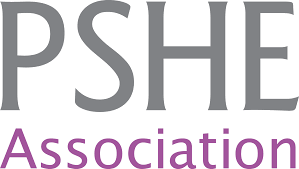PSHE & RSE
Personal Social and Health Education (PSHE)
At Willoughby Academy PSHE is a core statutory area of the curriculum. The aim is to give all Willoughby pupils the skills and knowledge to enjoy healthy relationships, understand personal boundaries and to live safely and happily in the modern world. All PSHE will be taught at a level appropriate to the pupils needs and will be tailored in accordance with the educational pathway that the pupil progresses on throughout their time at Willoughby Academy. Throughout all of Willoughby Academy, PSHE endeavours to instil independence, personal choice and an understanding and experience of dignity and respect. At Willoughby Academy, we recognise the differing and varied needs of our pupils and ensure that PSHE will be taught in a way that remains meaningful and accessible. With this in mind, not all pupils will access every element of these learning experiences and instead will access those most suitable to them and their individual needs.
Our curriculum is designed in accordance with the statutory guidance as well as the PSHE Association’s SEND framework, endorsed by the government. If you would like to see this framework, please do so by following this link:

https://www.pshe-association.org.uk/curriculum-and-resources/resources/pshe-education-planning-framework-pupils-send-key
Pupils in Early Years will learn PSHE in accordance with the Early Years framework. The emphasis is upon developing key skills through a cross curricular approach. The pupils will learn PSHE in accordance with the early learning goals of creating positive relationships and understanding the world around them.
Physical and Mental Well-being
When moving beyond Early Years, pupils within all key stages will be taught about Physical and Mental Well-being. The aim of this is to create pupils with a strong sense of self who recognise the importance of being supported to maintain their health through a variety of means. By the end of the pupil’s time at Willoughby Academy, they will have had learning experiences that focus upon:
- Mental health including; acknowledging mental health as equally important to physical health, understanding a wide variety of emotions, the importance of self-care, how and when to seek support and key vocabulary within these concepts.
- Physical health including; the importance of enjoyable exercise and how to maintain a healthy diet.
- Internet safety including; the positive impact of the internet in everyday life, how to stay safe online and on social media and the impact of our online actions.
- Drug, Alcohol and Tobacco Awareness.
- Personal Hygiene including; how best to maintain it and how to recognise feeling unwell.
- Changing bodies including; physical changes including puberty and emotional and hormonal changes.
Relationship & Sex Education (RSE)
Relationships Education
When pupils move into Key Stages 1-2, they will be taught PSHE through dedicated time tabled lessons. The pupils will be taught the newly statutory Relationships Education. This learning will build upon the early learning goals previously taught. By the end of Key Stage 2, the pupils will have had learning experiences that focus upon:
- Understanding and experiencing positive relationships including; different family units, caring and respectful friendships as well as online relationships.
- Body autonomy and awareness including; the concept of privacy, appropriate boundaries and key vocabulary in expressing these ideas.
- Being safe in the modern world including; how to recognise ‘unsafe’ feelings, how to ask for help, how to be heard and the concept of ‘stranger danger’.
- Opportunities to have personal discussions about questions the pupils may have.
From Key Stage 3 onwards, timetabled lessons will continue that build upon Relationships Education but also include Sex Education. Please enquire if you would like to be given guidance upon the ‘right to withdraw’. At Willoughby we recognise the importance of teaching these concepts with sensitivity and diligence. By the end of Key Stage 5, pupils will have had learning experiences that focus upon:
- Families including; the different types of families, the role of marriage in some relationships, roles of carers and children within a family and recognising an unsafe situation within a family.
- Respectful relationships including; positive characteristics of healthy relationships, the impact of stereotypes, domestic abuse (sexual and non-sexual) and equality.
- The importance of informed consent
- Sexual health including; understanding the positive aspects of healthy, consensual intimate relationships, reproductive health, managing sexual pressure, safe sex including contraception and sexually transmitted infections and where to seek advice.
The Right to Withdraw
-
At Willoughby Academy we recognise the critical importance of our pupils receiving a high quality and in depth PSHE curriculum. It is a fundamental tool in safeguarding our young people and provides invaluable skills and knowledge that our pupils will carry with them throughout their lives.
The PSHE Association states,
‘Teaching about puberty before children experience it is essential to ensure that pupils’ physical, emotional and learning needs are met and that they have the correct information about how to take care of their bodies and keep themselves safe.’
Ofsted’s PSHE lead, Janet Palmer HMI, has said:
‘If pupils are kept ignorant of their human, physical and sexual rights… they are not being adequately safeguarded.’
The legal rights regarding the right to withdraw are as follows:
- Parents and carers do not have the right to withdraw their children from Relationships Education
- Parents and carers do not have the right to withdraw their children from Relationships & Sex Education objectives which link to the Science National Curriculum (this includes puberty, anatomy and how the body changes).
- Parents and carers do have the right to withdraw their children from any or all parts of the ‘sex’ aspect of Relationships and Sex Education aside from the ones said above.
- The school must provide alternative arrangements for a pupil during a lesson from which they have been withdrawn. This alternative arrangement must be educationally meaningful to the pupil.
-
If you would like to exercise your right to withdrawal, please contact the Head Teacher to arrange a discussion on this matter.
The Trust's RSE policy can be accessed here
